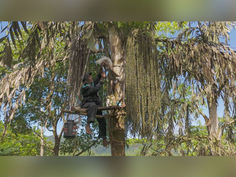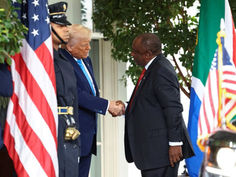The Price of Identity: How Kashmiris Are Paying for Political Tensions with Their Safety
- Rahaman Hadisur

- May 5, 2025
- 2 min read
Hadisur Rahman, JadeTimes Staff
H. Rahman is a Jadetimes news reporter covering the Asia

For Shabir Ahmad Dar, pashmina shawls are more than a source of income. They represent history, craftsmanship, and his Kashmiri heritage. For over two decades, Mussoorie had been more than just a market it had been a second home. His finely embroidered shawls were once a symbol of elegance for buyers; now, they’re left abandoned, buried under fear and political tension.
Dar’s assault caught on camera wasn’t just a physical attack. It was an attack on dignity, identity, and years of peaceful coexistence. When right-wing extremists ransacked his stall, they did more than destroy goods worth thousands of dollars. They shattered the fragile trust Kashmiris had in the rest of India.
From Hilltowns to Hostility: Why Kashmiris Are Leaving
This wasn’t an isolated incident. The ripple effect of the attack in Pahalgam which killed 26 civilians has been nationwide. Kashmiri vendors, students, and professionals report being harassed, beaten, and vilified across Indian cities. Their only crime? Being Kashmiri.
Ummat Shabir, a nursing student, was called a “terrorist” by her neighbors. Her classmate was kicked out of a taxi. This is what many Kashmiris are facing now not just public abuse but a silent, creeping fear that makes them feel unwanted in their own country.
The Dangerous Power of Stereotypes and Collective Punishment
The government’s response to the Pahalgam attack has raised alarm. Thousands have been detained. Tourist spots have been shut. Suspected militants’ homes many of them with families have been blown up. The narrative of “zero tolerance” against terrorism has quickly turned into something else collective punishment.
Even officials like Omar Abdullah and Mehbooba Mufti have warned against this. Condemning terrorism shouldn’t mean alienating an entire community. Innocents must not pay the price for the guilty.
A Cycle of Fear and Isolation
“Whenever tensions escalate, we are the first ones to bear the brunt of it,” said a Kashmiri student. This recurring cycle of scapegoating Kashmiri civilians every time India-Pakistan relations sour only serves to deepen the divide.
Despite the drop in militancy, Kashmiris are still being treated as suspects. Peace, for many, remains a performance one that often comes at the cost of civil liberties.
Condemning Terrorism, Demanding Justice | Without Hate
In the wake of the attack, many Kashmiris took to the streets to hold candlelight vigils, mourn the dead, and show solidarity. This is not a community that celebrates violence. On the contrary, they know grief too intimately.
As journalist Anuradha Bhasin rightly puts it, demanding that Kashmiris "prove their innocence" not only deepens mistrust it feeds alienation. It pushes a people already on the margins further away.
Shabir Ahmad Dar’s story isn’t just his own. It’s a reflection of the fear, injustice, and abandonment felt by thousands of Kashmiris living outside their homeland. If India is to be a truly inclusive nation, then justice must not be blind to identity. Violence, no matter where it happens or who commits it, should never become a tool to justify hate against innocent people.











































Comments